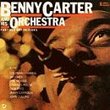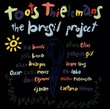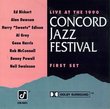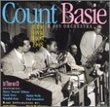| All Artists: Olivier Messiaen, Hakon Austbo Title: Messiaen: Piano Music, Vol. 4 Members Wishing: 0 Total Copies: 0 Label: Naxos Original Release Date: 1/1/2002 Re-Release Date: 11/19/2002 Genre: Classical Styles: Chamber Music, Historical Periods, Classical (c.1770-1830) Number of Discs: 1 SwapaCD Credits: 1 UPC: 636943465523 |
Search - Olivier Messiaen, Hakon Austbo :: Messiaen: Piano Music, Vol. 4
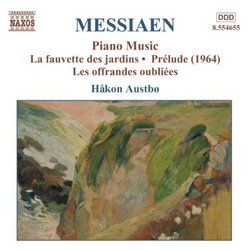 | Olivier Messiaen, Hakon Austbo Messiaen: Piano Music, Vol. 4 Genre: Classical
|
Larger Image |
CD DetailsSimilarly Requested CDs
|
CD ReviewsI didn't know what I'd been missing J Scott Morrison | Middlebury VT, USA | 12/04/2002 (5 out of 5 stars) "In the past I've sought out almost no piano music of Olivier Messaien, partly because I'd been put off by what I now know was a stultifying performance of 'Vingt Regards'. I'd also resisted listening to it in the past because of some brief exposure to what I'd considered his nonsensical 'bird twitterings'. But I decided that it was time for me to devote some serious attention to some of this music and I got this budget disc. I'm really glad I did . . . I think. I say 'I think' because I have been listening to this disc obsessively now for about ten days and am having trouble moving on to other things. (Well, I did take a side-excursion into the Medtner piano sonatas, but that's another story.) And I believe that I've 'cracked' the Messaien code. It now makes sense to me. Don't ask me what took so long. And don't ask me to explain it. Perhaps it just takes persistence and a good deal of unconscious absorption.
As to the specific pieces and performances here, the CD starts with 'Les Offrandes oubliées' ('The Forgotten Offerings'), which is a three section piece that represents the Cross, the descent of Man into Sin, and the offer of salvation. Musically, the most interesting section is the turbulent middle section (marked 'lively, fierce, desperate, gasping for breath'), which is then followed by the slow ending that conveys hope for the Sinner. The next piece surely is uncharacteristic of Messaien. He himself indicated that he was trying to write a 'funny' piece and indeed this one is. Called 'Fantaisie burlesque', it includes - gasp! - jazzy rhythms that are twisted out of shape and leave one - almost - laughing. I was reminded of William Bolcom's 'Ghost Rags'. Then comes a elegiac piece in memory of Messaien's teacher, Paul Dukas. (What a shame more of his music isn't played! Do you know his magnificent E flat 'Grande Sonate' for piano?). This is followed by an almost frivolous étude-like 'Rondeau' which was written as a competition piece for the Paris Conservatoire. The next short piece is the never-before-recorded 'Prélude' which wasn't published until 2000. It is slow, majestic, but not melancholy like much of Messaien's slow music. The largest piece on the disc is the half-hour 'La fauvette des jardins' ('The Garden Warbler') and it is indeed filled with 'bird twittering'. Somehow, though, for me it was not dismissable as this sort of thing had been in the past, but very involving. Perhaps that is because Messaien's rather long and involved description of the piece's 'program' is included in the liner notes. And this is the piece that wound up hypnotizing me. I can't tell you why, but I kept having it repeat and I kept losing myself in it. That's not a very evocative description of the piece itself, but I don't really know how to explain how this piece grabbed me the way it did. Maybe the timing was right, somehow. Hakon Austbo apparently is something of a specialist in the music of Messaien; he appears to be recording all of Messaien's piano music for Naxos, and I know he had previously recorded 'Catalogue d'oiseaux' on a different label. He is a terrific technician, as anyone playing this music would have to be, and what's more he obviously is 'inside' the music. The recording sounds clear and true. I'd recommend you give this disc a try." |

 Track Listings (8) - Disc #1
Track Listings (8) - Disc #1
